Seven years ago, we made the rather brave and slightly reckless decision to move from Kent, where we had lived all our lives, to Cornwall in the far southwest of England. We planned to live a greener, more sustainable life and, as such, acquired a little cottage with a very large garden and planned to fill it with vegetables and fruit trees; some hens to provide us with free range eggs would complete the master plan. Having always had rescue cats and dogs, I only ever considered having ex-commercial, or rescue, hens so found a rehoming center for the British Hen Welfare Trust up in North Cornwall and reserved three hens. The moment I first saw these three girls–who were subsequently named Audrey, Agatha, and Aurora–was a defining moment in my life. The thought of hens in cages had always been something I had thought of as wrong, naturally, but when I saw the effects these cages have on the hens entombed in them, my heart broke. How on earth could treating a fellow creature like that be acceptable? If it was dogs or cats kept in cages, there would, quite rightly, be a public outcry. What makes chickens different from dogs?*
*The answer is nothing; hens are sentient, intelligent creatures capable of displaying a broad range of complex emotions from fear and love to grief and happiness. Over the years, my hens have shown these emotions and many more–including the hens who took it in turn to care for their dying sister, the top hen who befriended the hen at the bottom of the pecking order, letting her sleep in her nest box at night, or the two hens who had been apart for almost two years that remembered each other immediately.
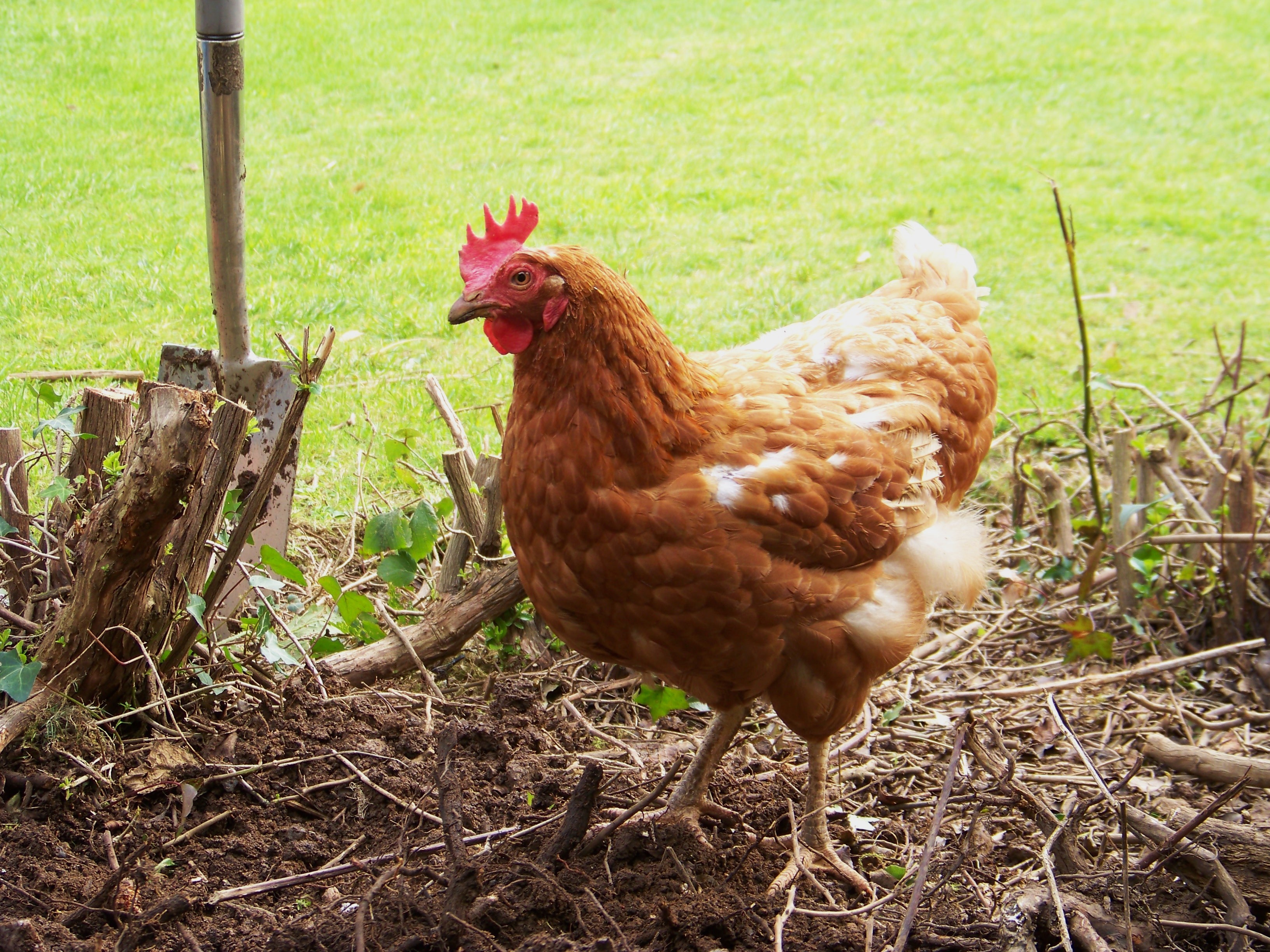
Entranced by my new girls and keen to repay some of the love they had given me, I started to help out with charity rehomings, going into caged farms and taking the hens out of the cages. Walking past rows of caged hens destined for slaughter was the stuff of nightmares, and one visit was enough to stop me ever eating commercial eggs again.
And this was the start of my journey to veganism. I went vegetarian about 15 years ago, something I had put off as I didn’t think I could cope with feeding a family of five meat eaters as well–turns out, they couldn’t tell the difference between beef and soya mince anyway! I even converted my husband to vegetarianism over time.
But seeing those poor hens made me investigate my food further; I visited a dairy farm and was so distressed by what I saw that I stopped drinking milk, trying all the plant-based alternatives and settling on coconut as my milk of choice. However, I struggled at what I thought of as the “Halloumi Hurdle.” Could I live without cheese? My husband and I signed up for Veganuary so we could “try it for a month and see,” and I admit to waking up on January 1st 2015, panicking that I would never eat cheese again. Well, I am still (and now always will be) vegan, and I haven’t eaten dairy cheese since then, but I have enjoyed a wonderful variety of nut-based cheeses–not to mention the glorious array of plant-based foods available. I have relished browsing wholefood stores and eating new products and trying new recipes and methods of cooking, knowing nothing I eat has caused suffering to any fellow creature. I think once you have made that “switch” in your thought process–not wanting to cause harm to anything–then being vegan is the easiest thing in the world to do and is life-enhancing in every way.
Five Reasons to Rehome Ex-Commercial Hens
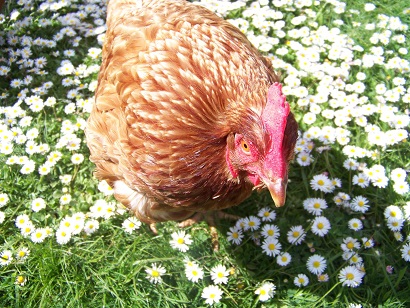
For me, what started out as “just a few hens in the garden” has become so much more. The hens have taken my life in so many new exciting directions, not least starting a micro-sanctuary for ex-commercial hens, called Effie’s Garden, named after a very special hen with a twisted neck and a big, brave soul.
Rehoming ex-commercial hens has been the best thing I have ever done, and here are five reasons why I would recommend it to everyone:
1. Physical Well-Being
Hens give you a reason to get up and be outside. Caring for them each day ensures you are benefitting from fresh air and exercise and are interacting with nature and wildlife: enjoying sunrises, sunsets, and everything in between. There is little better in life than sitting in the garden with your girls clucking around your feet whilst you tell them about your day. Hens are excellent listeners, by the way. They don’t interrupt, they never judge, and they will always love you.
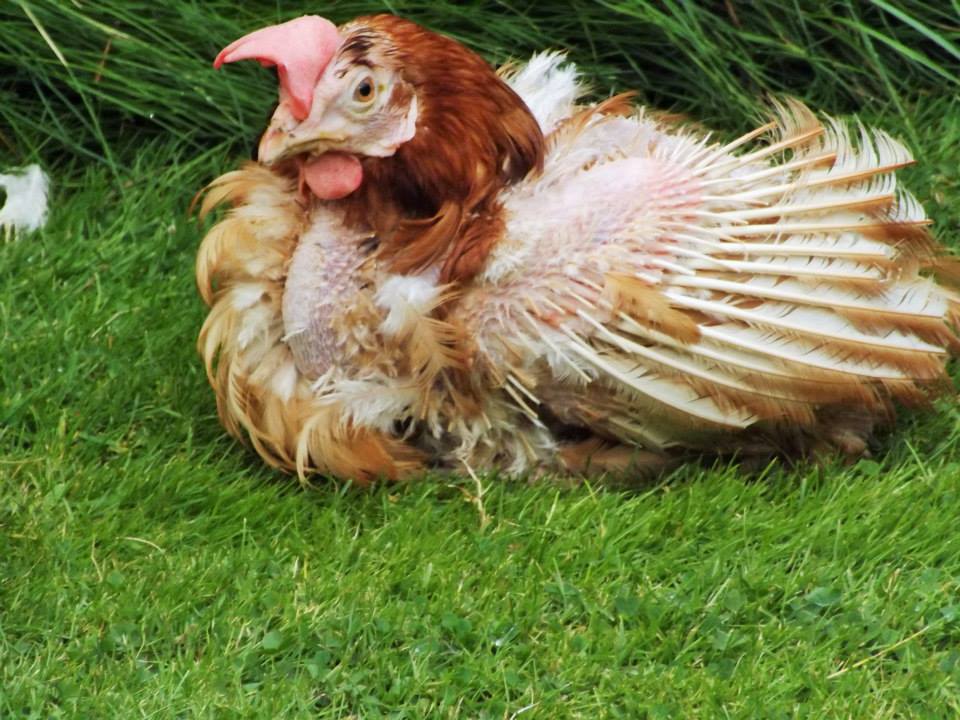
2. Emotional Well-Being
When I rehomed those first three ex-commercial hens, I thought it was me that was doing the rescuing; in fact, it was them that rescued me. Emotionally frail after my son’s lengthy illness, those three girls whose featherless, frail bodies belied their big hearts and even bigger characters, were my saviors.
Looking back, I can’t remember when it was exactly that they stopped being “just chickens” and became “my girls.” I think it was the moment, two weeks after rehoming, that I opened the back door and they came running across the garden to me–their joy at seeing me unconditional. It is hard to be sad in the reflection of such love. My hens saved me, but it would seem I am not alone. Scratch the surface of many a hen keeper, and you will find a similar story of recovery, hope, and love.
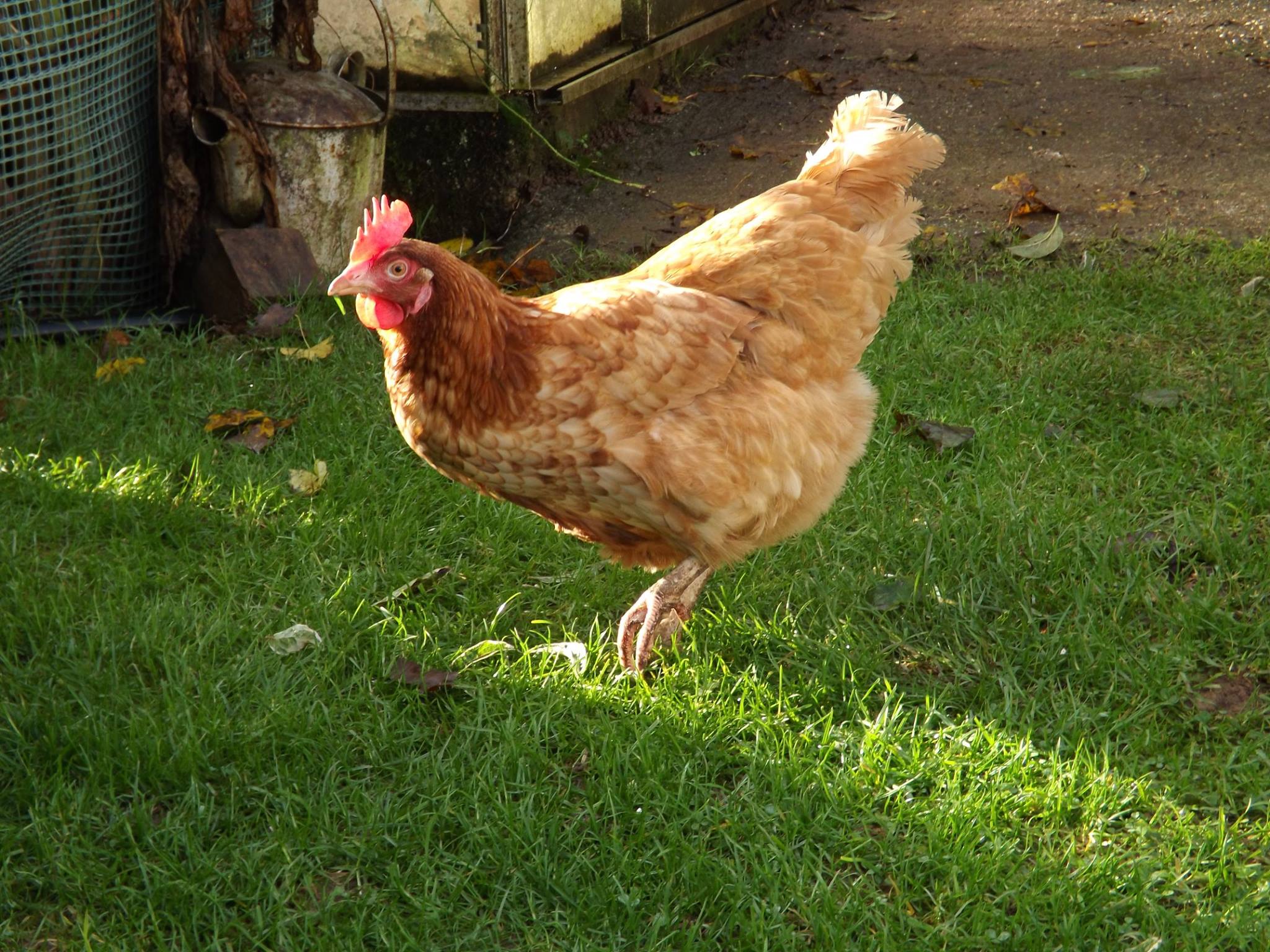
3. Friendship
Hens help with feelings of isolation–whether interacting with fellow hen keepers or joining some of the friendly and supportive online hen-keeping communities; for example, there is a lovely compassionate Facebook group called Vegans with Chickens. Hens bring people together, giving them a shared passion.
But the magical power of hens extends to other groups, too. The advantages of Animal Assisted Therapy are well known, but using chickens, instead of the more traditional choice of dogs or cats, has also shown to have extremely positive results. The success of the English-based Henpower scheme, where pensioners in care homes look after their own flocks of hens, has shown remarkable results in improving the quality of life of the residents.
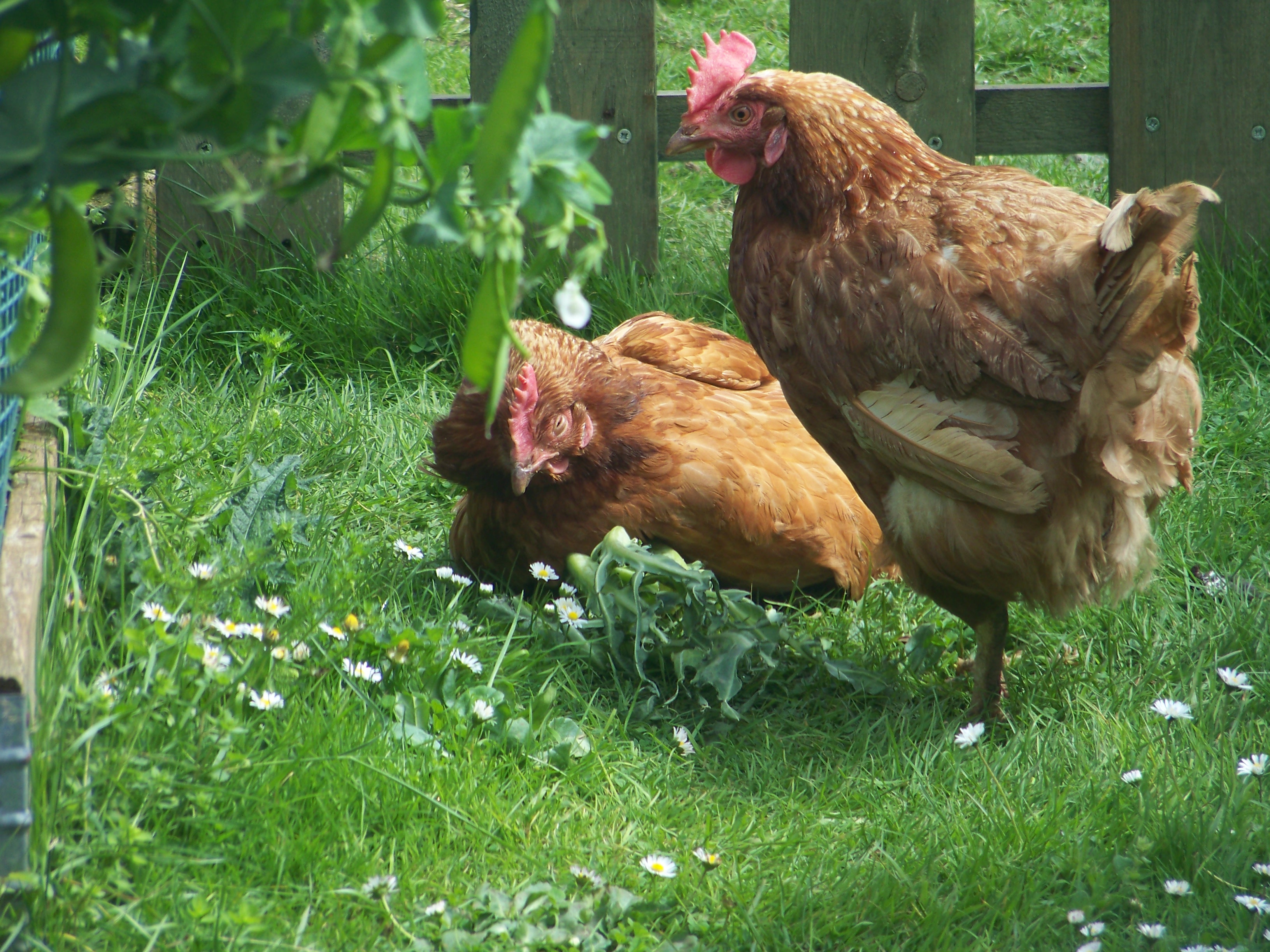
4. Education
It is never too early for children (and indeed adults!) to learn where their food comes from. When people see hens that have recently been rehomed, they are horrified at the state of them and, for many, it is the start their journey towards vegetarianism and ultimately veganism. My girls also go into schools and colleges to help spread the word, entrancing the previously skeptical teenagers within minutes. Small children of family and friends often visit my girls, all the time learning about welfare and food provenance, all cleverly disguised as a chicken cuddle and the discovery of a freshly laid egg in the nestbox!
And what to do with those eggs? I believe the egg is the property of the hen so we feed them back to them–usually scrambled–to help these girls recover their health and vitality. During the egg glut in the summer months, we also pass on any excess to delighted friends and family.
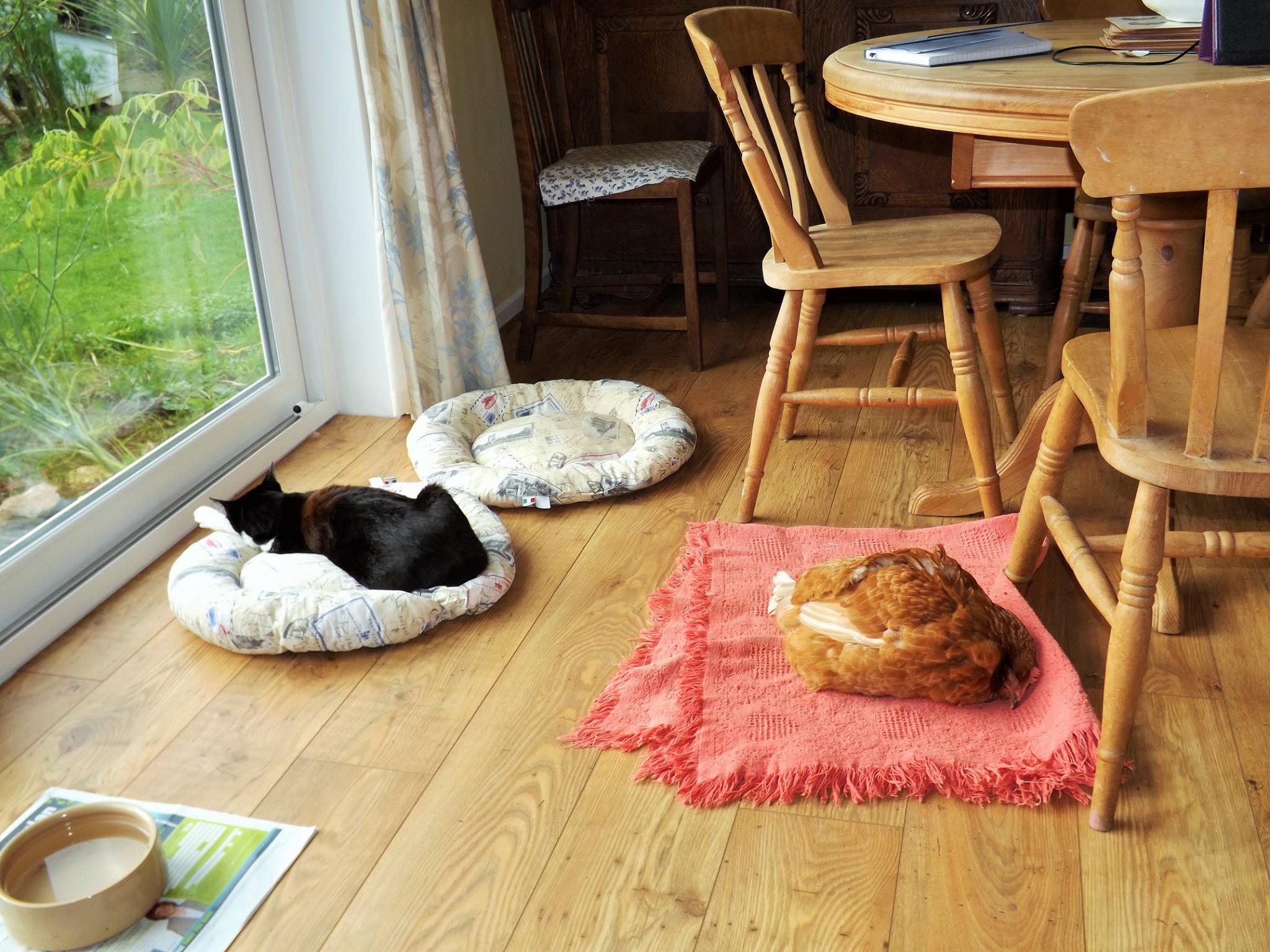
5. Making a Difference
Last but most certainly not least is the fact that by re-homing some ex-commercial hens, you are saving a life. All commercial hens are sent to slaughter after 18 months of laying–be that caged or free-range–as they are no longer commercially viable. So every hen that you rehome is a life saved. In a world where animal suffering can seem overwhelming, this is a positive, empowering, and life-affirming step to take. You will make an unimaginable difference to so many precious lives; every day an ex-commercial hen spends in the sun doing all the things every hen should be entitled to do–dustbathing, foraging, preening, and sunbathing–is a good day and one that should be celebrated.
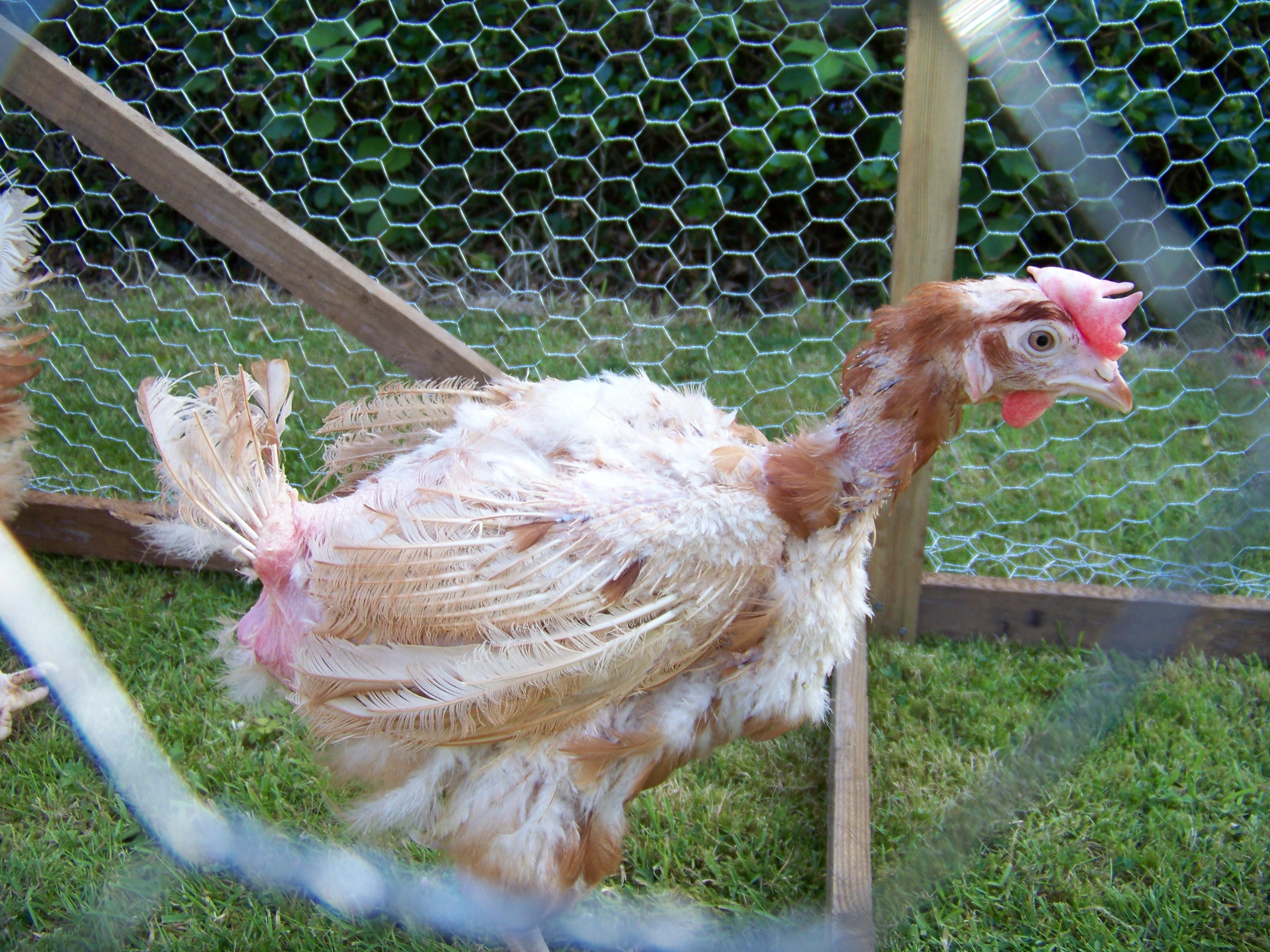
__
My girls have now taken over my life: I write about them, run courses about them and help find homes for other ex-commercial hens. My garden is now a micro-sanctuary full of hens I have nursed back to health, and I have made lifelong (human) friends with a shared love of these special girls.
For anybody thinking of rehoming ex-commercial hens, I cannot tell you how truly magical they are. Hens will return your love tenfold and bring sunshine to your soul.
Related: What I Learned from Adopting a Turkey
How My Better Half Became Vegan
5 Self-Care Essentials for Animal Rights Activists
Get more like this–sign up for our newsletter for exclusive inspirational content!
__
Photo: Jo Barlow




